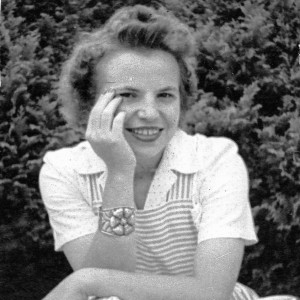When greed takes over: Greenfield writer pens ‘a cautionary tale for all ages’

—
| Published: 01-19-2024 11:35 AM |
The Green Palmers Chronicle
By Jon Huer
Austin Macauley Publishers
Readers of Jon Huer’s commentary in this newspaper may be surprised to see a slightly different side of the Greenfield writer in “The Green Palmers Chronicle.” Huer calls the novel “a cautionary tale for all ages.” Its hero is a 12-year-old boy, Mikey Brown. Its theme is the darkness within human beings.
Mikey, who narrates the book a decade after its plot takes place, lives in Laurinville, a small town probably about the size of Shelburne Falls. Everyone there goes to the same bank, the same grocery store, and the same school … and reads the same newspaper.
It’s not clear precisely when the story is set — perhaps in the 1950s.
Laurinville is a community of beautiful gardens and unlocked doors, where everyone knows everyone else. The townspeople are generally innocent and benign as the story opens.
Mikey’s mother was killed in a freak tornado. His father, a baker, manages to keep the boy grounded and secure with loving guidance.
Mikey knows just about everyone in town. He is particularly attached to a female auto mechanic he vaguely hopes his father will marry and to a Russian-born watch repairman.
The latter idealizes his adopted homeland and gives Mikey a framed placard reading “Liberty and Justice for All,” the linchpins of the American way of life as the immigrant sees it.
Article continues after...
Yesterday's Most Read Articles
Laurinville’s idyllic nature is turned upside down when the Green Palmers arrive in town. These sinister proselytizers spread a gospel of greed and consumerism runs amok. They lure Laurinvillians by promising them wealth and success and teaching them to distrust everyone around them.
The Palmers conduct an initiation in which they persuade townspeople to swallow dollar bills. Once the initiation is complete, the palms of the newly indoctrinated become green, and their souls become sour.
Mikey’s life is thrown upside down. His father abandons his work ethic, stops visiting his wife’s grave, and takes up with a floozy from the next town.
Having invested his own savings in the Palmers’ get-rich-quick schemes, Mr. Brown starts eyeing Mikey’s college fund and making noises about selling the family home to glean more money to invest.
At school, capitalism takes over as well. The administrators make money by installing myriad vending machines to lure the students into spending their allowances in search of a sugar high. Team sports are transformed from a culture of participation to a culture of competition as only good athletes are allowed to play.
The whole town begins to feel suspicious of the neighboring town, with which it shares a water source. Soon the two towns are at war.
It is up to Mikey and the few Laurinvillians whose palms retain their natural color to save the town.
Huer’s story is both utopian and dystopian. I adore my hometown of Hawley, but even Hawley has never been as wholesome as Laurinville is at the beginning of the book. And fortunately few communities if any face the kind of disaster it encounters when the Green Palmers arrive.
Huer’s point, however, is that every town — indeed, every person — has the potential to be Laurinville before and after the Palmers arrive.
The book is well paced, highly imaginative, and clever. According to the author, it is the first in a trilogy. I look forward to seeing what becomes of Mikey and Laurinville in the next two installments.
“The Green Palmers Chronicle” is available at bookstores in Greenfield and online from Austin Macauley and Barnes and Noble.
Tinky Weisblat is an award-winning cookbook author and singer known as the Diva of Deliciousness. Visit her website, TinkyCooks.com.

 From fair to fantastic: Memorial Hall Museum exhibit shows how Green River Festival blossomed over 37 years
From fair to fantastic: Memorial Hall Museum exhibit shows how Green River Festival blossomed over 37 years Valley Bounty: Fibers for farmers: Western Massachusetts Fibershed turns local ‘throw away’ wool into fertilizer pellets
Valley Bounty: Fibers for farmers: Western Massachusetts Fibershed turns local ‘throw away’ wool into fertilizer pellets Sounds Local: Joni Mitchell tribute comes to Turners Falls: Big Yellow Taxi to perform ‘Court and Spark’ in its entirety, May 18 at the Shea
Sounds Local: Joni Mitchell tribute comes to Turners Falls: Big Yellow Taxi to perform ‘Court and Spark’ in its entirety, May 18 at the Shea On Mother’s Day, we’ll always have Paris: A crêpe recipe in honor of my French-speaking mother
On Mother’s Day, we’ll always have Paris: A crêpe recipe in honor of my French-speaking mother
